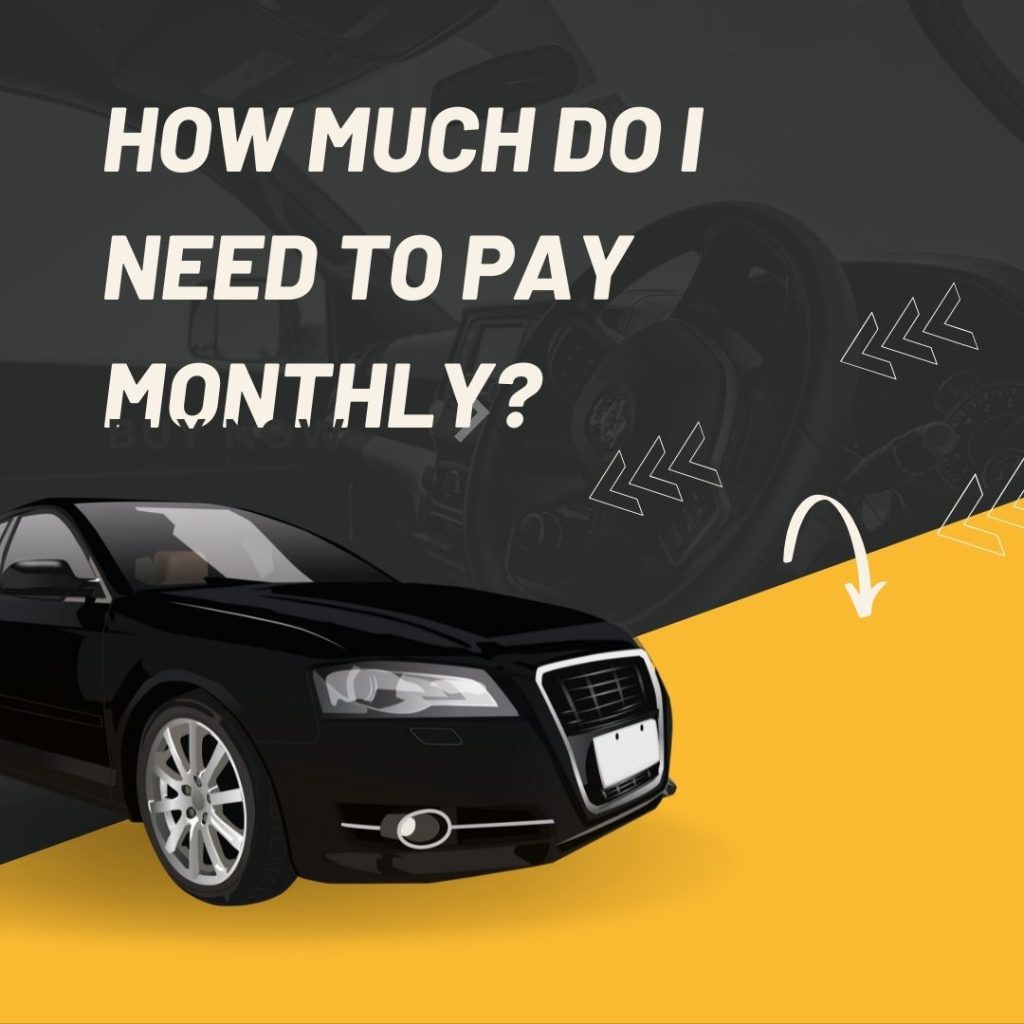> Blog > What Do I Bring When I Want To Finance A Car?
What Do I Bring When I Want To Finance A Car?

Financing a car can be complicated. When you go to the dealership, they’ll ask for all sorts of documents! That often may lead to an experience where you’re feeling underprepared and feel like they’re giving you the runaround to stall so they can get a commission on some other vehicle. But don’t worry! I’m going to break it down into easy-to-reference pieces, in case yours is one of those dreaded days where finance seems impossible. After test driving a vehicle and deciding that it’s the car for you, there are some other important details to attend to. Engine type, mileage, warranty – these are all elements of the car-buying process that need to be considered and compared before making a final decision.
Table of Contents
What do I bring to a dealership when financing a car?
When you go to a dealership to finance a car, you will need to bring some important documents with you. These include your driver’s license, proof of insurance, and proof of income. You will also need to bring along a blank check from your bank or credit union, as well as any other required loan documents.
When you go to finance a car, you’ll need to bring a few things with you. The most important thing is your driver’s license, so the dealership can run a credit check. You’ll also need proof of insurance, so the dealer knows you can afford to pay for the car. Finally, bring along any documents that show your income and assets. This will help the dealer determine how much car you can afford to finance.
What are lending rules for different types of lenders (i.e. banks and non-banks)?
Different lenders will have different lending rules when it comes to financing a car. Banks, for instance, are typically more conservative with their lending practices and may require a higher credit score or down payment than a non-bank lender. It’s important to shop around and compare offers from different lenders to make sure you’re getting the best deal possible.
Different lenders have different lending rules when it comes to financing a car. Banks, for example, typically have stricter lending rules than non-banks. This is because banks are regulated by the government and have to follow certain guidelines when lending money. Non-banks, on the other hand, are not regulated by the government and can therefore offer more flexible lending terms.
If you’re thinking of financing a car, it’s important to know the different lending rules that apply to different types of lenders. This will help you choose the best lender for your needs and ensure that you get the best deal possible.
Types of Loans Available:
There are many different types of loans available when financing a car. The type of loan you choose will depend on your credit history, budget, and the size of the down payment you are willing to make. Some common types of loans include:
1. Standard Loan: A standard loan is the most common type of loan used to finance a car. It typically has a fixed interest rate and monthly payments.
2. Balloon Loan: A balloon loan may have lower monthly payments than a standard loan, but you will be required to pay a large lump sum at the end of the loan term.
3. Lease: When you lease a car, you make monthly payments to the dealership or leasing company for the use of the vehicle. At the end of the lease term, you can choose to purchase the vehicle or return it to the dealership.
4. Dealer Financing: Some dealerships offer their own financing options. These deals may include low-interest rates and other incentives, but it is important to shop around for the best rate before choosing this option.
Apply for an Auto Loan
Financing a car can be a daunting task, but luckily there are plenty of options available to help make the process easier. One option is to apply for an auto loan through a bank or other financial institution.
When applying for an auto loan, be sure to bring along all of the necessary documentation. This includes proof of income, employment history, and credit score. You will also need to provide detailed information about the car you are looking to purchase, such as the make, model, and year.
Applying for an auto loan is a great way to finance a car, and by doing so you can shop around for the best interest rates and terms. Be sure to compare different lenders before making a decision, and always remember to read the fine print!
Personal Loan vs Auto Loan vs Commercial Loan
When it comes to financing a car, there are a few different options available. Personal loans, auto loans, and commercial loans are all popular choices, but which one is right for you? Here’s a quick rundown of each option:
-Personal loan: A personal loan can be used for anything, including financing a car. The interest rates are usually lower than those of auto or commercial loans, but the terms are often shorter. This can make monthly payments higher, but you’ll pay off the loan faster.
-Auto loan: An auto loan is specifically for financing a car. The interest rates are usually higher than with a personal loan, but the terms are often longer. This can make monthly payments lower, but you’ll end up paying more in interest over the life of the loan.
-Commercial loan: A commercial loan can be used for business purposes, including financing a car for business use. The interest rates are usually higher than with a personal or auto loan, but the terms are often longer. This can make monthly payments lower, but you’ll end up paying more in interest over the life of the loan.
How Long Does it Take to Get an Auto Loan from Start to Finish?
The process of getting an auto loan can vary in length depending on a few factors, but it typically takes around 30 days from start to finish. The first step is to get pre-approved for financing, which you can do through a bank, credit union, or online lender. Once you’ve been approved, you’ll work with a dealer to choose the car you want and finalize the loan agreement. The dealership will then send the paperwork to the lender to be processed, and once everything has been finalized, you’ll receive your loan funds and can start driving your new car!
The Process Begins
The process of financing a car can be daunting, but it doesn’t have to be. Here’s a quick rundown of what you’ll need to do to get the ball rolling.
First, you’ll need to find a lender. You can do this by shopping around at different banks or credit unions, or by using an online lending platform like LendingTree. Once you’ve found a lender that you’re comfortable with, it’s time to fill out a loan application.
The loan application will ask for basic information about you and your financial situation. This includes things like your income, debts, and assets. The lender will use this information to determine whether or not you’re a good candidate for a car loan, and how much they’re willing to lend you.
Once you’ve been approved for a loan, it’s time to start shopping for your new car! Keep in mind that the terms of your loan will likely dictate how much you can afford to spend on a vehicle. Once you’ve found the perfect ride, it’s time to head to the dealership and seal the deal.
Assuming all goes well, you’ll drive off the lot with your new car and begin making monthly payments on your
Assemble Your Documents
Before you go to a dealership or lender to finance a car, it’s important to have all of your ducks in a row. This means having all of the required documentation on hand to make the process as smooth as possible. After all, no one wants to be caught off guard during such an important transaction!
So, what do you need to bring with you? First and foremost, you’ll need proof of income. This can be in the form of a pay stub, tax return, or other financial documents. You’ll also need proof of residency in the form of a utility bill or lease agreement. Lastly, don’t forget to bring your driver’s license!
With all of these items in hand, you’ll be ready to finance a car with confidence.
Test Driving Your Car
When you go to test drive a car, you should bring your driver’s license, registration, and proof of insurance. You should also bring a friend or family member with you to help you make a decision. Finally, don’t forget to bring your payment method!
Trades In
When you’re ready to finance a car, it’s important to bring all of the necessary paperwork with you. This includes your driver’s license, proof of insurance, and any other required documentation. You’ll also need to have a down payment for the car, as well as any trade-ins you might be making. Be sure to bring all of the paperwork for these items as well. Finally, make sure you have a pre-approval letter from a lender before you go to the dealership. This will help you get the best financing terms possible.
What do You Need to Bring with You When Finance a Car?
If you’re in the market for a new car, you’re probably wondering what you need to bring with you when you go to finance it. The good news is that, while there are a few things you’ll need to have on hand, the process is relatively simple. Here’s what you need to know.
When you go to finance a car, the dealership will need to see proof of income and residency. They’ll also need to run a credit check. In order to do this, you’ll need to bring:
-Your driver’s license
-Proof of income (W-2 forms or pay stubs)
-Proof of residency (a utility bill or lease agreement)
-Your Social Security number
The dealership will use this information to secure financing for your car. Once they have everything they need, they’ll be able to get you the best possible loan terms. If you have any questions about what you need to bring with you when financing a car, be sure to ask the dealership ahead of time. They’ll be happy to help you through the process so that you can drive off the lot in your new car as soon as possible.
How Does Financing at a Car Dealership Work?
When you finance a car at a dealership, the dealership will work with a lender to get you a loan. The loan will be for the purchase price of the car, minus any down payment that you make. The dealership may also charge you an interest rate on the loan, which will add to the cost of the car.
When you finance a car at a dealership, the process is fairly simple. You’ll work with a salesperson to choose the car you want and then meet with the dealership’s financing manager to discuss your options. The financing manager will go over your credit history and income to determine what kind of loan you qualify for. Once you’ve agreed on a loan, the manager will arrange for you to sign the paperwork and take delivery of the car.

Financing at a dealership can be a great option if you’re looking for a new car and don’t have the cash to pay for it outright. It’s also a good choice if you’re looking to take advantage of dealer incentives, such as 0% financing offers. However, it’s important to remember that dealer financing typically comes with a higher interest rate than financing through a bank or credit union. So, if you’re not careful, you could end up paying more for your car than you need to.
How to get the best car loan in 5 Simple Steps
You need to bring a few things when you go to the dealership to finance a car. These items will help the dealership determine if you’re a good candidate for a loan and what interest rate to offer you.
The first thing you need to bring is proof of income. This can be in the form of a pay stub from your job or a tax return from the previous year. The dealership will use this information to determine how much money you can afford to spend on a car loan each month.
You’ll also need to bring some information about your credit history. The dealership will pull your credit report and use it to help set the interest rate for your loan. If you have good credit, you’ll likely get a lower interest rate. However, if you have bad credit, you may have to pay a higher interest rate.
Finally, you’ll need to bring some money for a down payment. The size of your down payment will affect the total amount of money you’ll need to finance for your car. A larger down payment will lower the amount of money you’ll need to finance, and as a result, you may get a lower interest rate.
Financing or Leasing a Car
If you’re looking to finance or lease a car, there are a few things you’ll need to bring with you to the dealership. Here’s a quick rundown of what you’ll need:
-Your driver’s license
-Proof of insurance
-A recent pay stub or other proof of income
-Any documents related to your trade-in, if applicable
-Down payment money, if you’re not paying outright for the car
Once you have all of these items, you’ll be ready to talk to a financing or leasing specialist at the dealership and get the process started.
There are a few things to consider when financing or Finance a car. The first is to figure out what you can afford. You’ll need to take into account the price of the car, along with things like interest rates, taxes, and insurance. Once you’ve done that, you can start shopping around for the best deal.
If you’re financing a car, you’ll need to bring some money down with you. The size of your down payment will affect your monthly payments and the overall cost of the loan. It’s a good idea to have a budget in mind before you start shopping for a car so that you know how much you can afford to spend.
If you’re leasing a car, there are a few things to keep in mind as well. First, you’ll need to put down a security deposit. This is usually equal to one or two months’ worth of payments. You’ll also be responsible for things like insurance and maintenance on the car. Be sure to factor these costs into your budget before signing any leases.

Hello Friends! This is Firan Mondal, a Mechanical Engineering having more than 14 years of experience in various industries. I love Automotive Engineering and it’s my pleasure to associate with this subject. Currently, I am associated with an MNC company, exploring my knowledge domain in the Automotive sector and helping people to select relevant dealers in their footsteps without any hindrance.
Recent Posts
-
Best In House Financing Car Dealers Near Me in 2024
June 4, 2024
-
Buy Here Pay Here Corbin KY-Best used Car Dealerships In Corbin KY
June 4, 2024
-
Buy Here Pay Here Car Dealership Fredericksburg VA – Best BHPH Car lots of 2024
June 4, 2024
-
Buy Here Pay Here Car Lots Texarkana : Your Trusted Used car lots in Texarkana in 2024
May 22, 2024
-
Buy Here Pay Here Car Lots Springfield mo : Best Used Car lots in Springfield mo
May 12, 2024
-
How to Find Best Buy Here Pay Here Campers Near Me
May 7, 2024
Leave a Reply